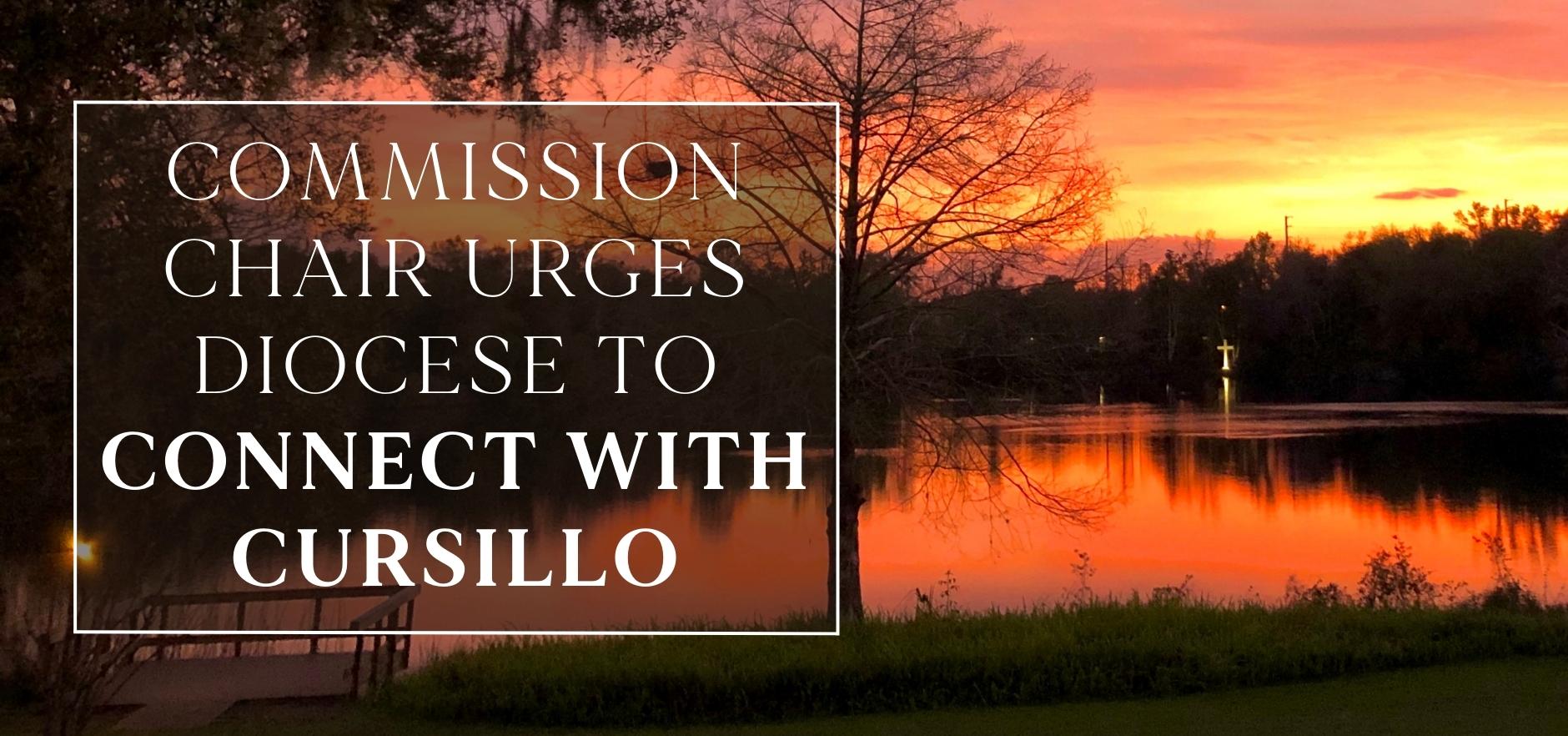Chuck Pierce wants you to attend Cursillo. That desire comes not primarily from his position as chair of the diocese’s Cursillo Commission but from his own experience of a Cursillo weekend, which he describes as “an absolutely life-changing, moving experience.”
Cursillo, translated from Spanish as “a short course in Christianity,” began as a Roman Catholic movement in Mallorca, Spain, in the late 1940s and has since crossed both the ocean and denominations.
“Sometime in the late ’70s, The Episcopal Church signed an agreement with The Catholic Church to follow the Cursillo method: 15 rollos, or talks; five meditations; and three Eucharists spread out initially over three days,” Pierce explained. “We’ve managed to figure out how to condense this to two days to try to meet a little more modern standards, to get started late on Friday and end up on Sunday without people having to take time off work.” Other denominations have joined the Cursillo movement as well, although only Eucharistic churches are permitted to use the name “Cursillo.”
While Cursillo remains an international movement, its greatest impact is personal.
“Again, for me, it was an absolute life-changing experience,” Pierce said. “I had been going to church and working on the periphery, but I was never very spiritual. That all changed with Cursillo.”
A friend he met while volunteering in a Stuart, Florida, soup kitchen invited him to his first weekend event. “The guy who was running the soup kitchen walked in one day and said, ‘Chuck, you’re going to Cursillo,'” he said. “I had no idea what it was.” A similar invitation remains a requirement for attending Cursillo today.
Pierce’s first Cursillo took place in October 2006, and Pierce’s involvement with the ministry has only grown since that initial experience. When he and his wife moved to Central Florida, his son pointed out that there was an opening on the Cursillo Commission, and Pierce filled that spot. “I’ve held every job in the organization of the weekend except leading music,” he said.
But Cursillo’s ministry extends far beyond the weekend experience. “Cursillo is built around a tripod of things called faith, piety and action,” Pierce said. “Those who finish the short course meet with other people in what Cursillo calls reunion groups. They help you maintain your focus on what you’re doing.” The reunion groups join for monthly events called ultreya, which Pierce described as “reunion groups of reunion groups.”
This spring, Pierce has helped plan a Cursillo Men’s Weekend, to be held at Canterbury Conference Center April 29-May 1.
“The team will move into Canterbury Friday morning,” he said. “We will set up the rooms that we need: the chapel and the rollo room, where the talks are presented and the discussion takes place. And then the candidates will begin to arrive Friday evening; we’ll eat dinner together and then go into sessions where rollos are presented.
“One of the provisions is that after the Friday-night session until after breakfast on Saturday, we are asked to meditate and keep conversations to an absolute minimum,” Pierce said. To lessen distractions, the leadership team also has cursillistas (those participating in a Cursillo weekend) leave their cell phones and watches in a separate room. The rollo sessions, worship and Eucharists continue until the weekend concludes on Sunday afternoon with time for testimonies as well.
Pierce urged those interested in Cursillo but without a personal connection to speak with their parish Cursillo coordinator and/or priest to begin the invitation process. Prospective cursillistas may want to attend a Cursillo renewal group or an ultreya with a sponsor to get a fuller picture of what Cursillo is all about.
The diocese is planning a Co-Ed Cursillo Weekend for Sept. 30-Oct. 2, 2022, also at Canterbury. For more information on the weekend or Cursillo in general, please visit the diocesan Cursillo page and/or National Cursillo USA.

